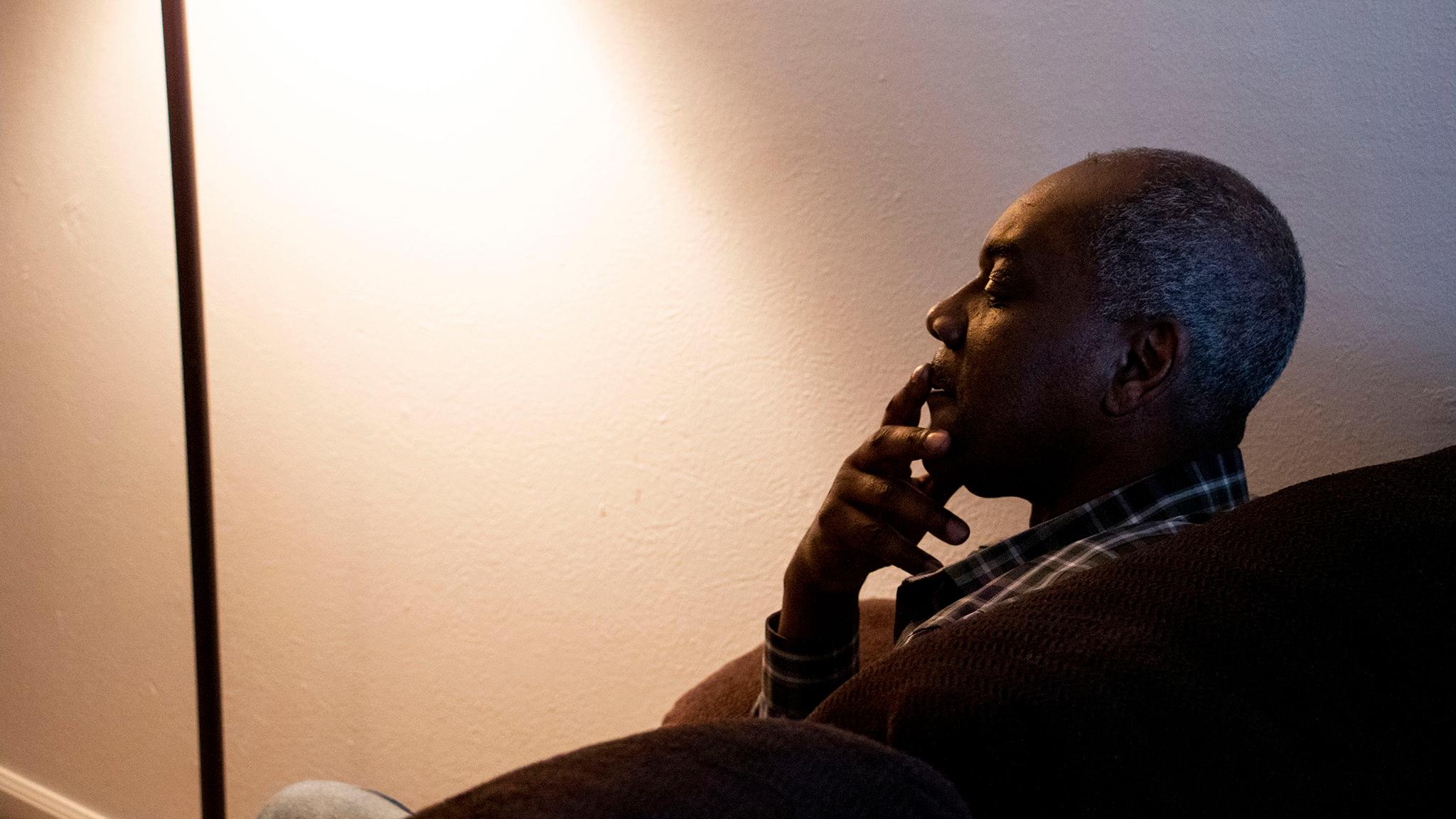William Dawson had almost given up on finding a home.
"If you're a felon and it's been less than seven years, you pretty much need to live under a bridge," said Dawson, who also was hobbled by limited income.
The Air Force veteran's felony was for driving after his license was revoked. A Denver-area resident since 2011, he was charged and convicted while visiting family in Florida. After 11 months in prison in Florida, he returned in 2017 to Colorado. The only housing he could find was a series of motel rooms along Colfax.
Dawson described looking for housing as a full-time job. He couldn't drive, so he would spend hours traveling by bus to look at apartments and fill out applications. Again and again, he said, he was rejected because of his criminal record.
By chance, he heard about Beacon Place, a transitional housing program run by the Colorado Coalition for the Homeless.
"My higher power whom I choose to call Jehovah led me to Beacon Place," he said.
From Beacon Place he was directed to a Denver-based staffer for the federal Department of Veterans Affairs, who helped him find housing. Dawson had served 10 years in the Air Force, ending his stint in 1985 and working since then in a variety of sales jobs. After he left the service, it was 20 years before he connected with the VA, about medical services. Then it would be more years before he went to the VA again.
Dawson said his father, a Korean War veteran, set an example he followed when it came to investigating VA benefits.
"He felt like because he made it home, that should be enough. Others didn't make it home," Dawson said. "Going after benefits would be taking advantage of the situation."
Dawson, for whom the VA connection was critical, knows that for many veterans, getting help finding housing can seem impossible.
To help people like Dawson -- to solve the problem of veteran homelessness -- officials and nonprofits are using a combination of big data, collaboration, grant making and public policy. Success housing veterans could point the way to solutions for everyone struggling to get into or hold onto a home, if only by proving that a problem that seems intractable can be defeated.
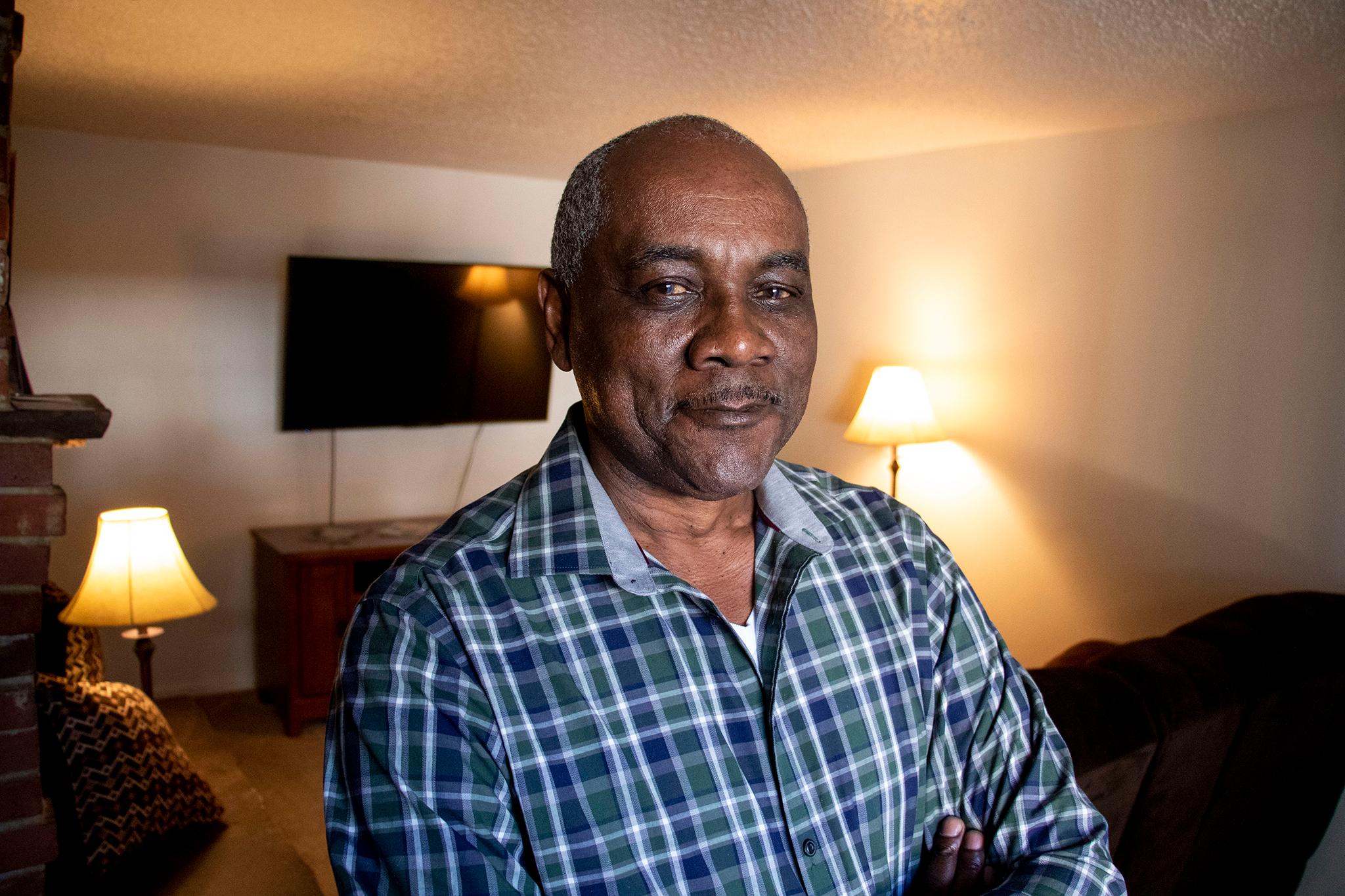
Missy Mish and Lauren Lapinski - social workers at a Veterans Affairs homelessness center in Denver's Clayton neighborhood - seem energized by information they're getting from other organizations fighting the same fight.
Thanks to the sharing of data, "our numbers have gone up. We suspect that folks were already there. We just didn't know about them," Mish said, referring to her roster of veterans experiencing homelessness in the Denver area.
"We are discovering where people are presenting when they are newly homeless," she said, saying that has allowed VA outreach workers to target shelters such as those run by Denver Rescue Mission.
"We are trying to catch people early in their homelessness."
Lapinski added: "We're getting a better picture of what homelessness looks like in our community."
Mish, Lapinski and others at government and nonprofit homelessness service agencies say the Denver area is poised to make progress in getting veterans off the streets because it has at last taken steps to improve collaboration and data collection. National and local organizations also are trying new approaches to finding homes for those in need in a market where housing prices have skyrocketed far beyond the pace of wages.
It can be hard to communicate the cautious optimism around ending homelessness for veterans, making it hard to rally the broader community support that may be key to the effort.
"In a lot of areas across the country, you just see communities overwhelmed by the fact that we would let people who have served their country come back to be homeless," said Cathy Alderman, vice president of communications and public policy for Colorado Coalition for the Homeless.
The places that have seen that kind of community engagement, she said, are able to say that when a veteran becomes homeless, the experience will be short-lived and not repeated. That's one definition for ending homelessness.
"Colorado could do that," Alderman said. But "in Colorado, there just hasn't been the voice or there just hasn't been the urgency."
"As a community, I don't feel like I've been at many, 'How are we going to address homelessness among veterans?' conversations," Alderman said.
The sight of tents on debris-strewn sidewalks and men and women holding signs with scrawled pleas for help spark bafflement, fear and anger. The VA's Mish said people also react with compassion, but don't always know how to help or what in what direction they can point those in need.
Mish is program manager for the VA Community Resource and Referral Center in Denver, one of about 40 across the country that have opened since 2012.
Such centers are part of an initiative launched by the Obama administration in 2010 aimed at ending veteran homelessness.
"There was an acknowledgement that the VA in many local communities was not doing a good job of engaging with vets who were homeless," Mish said.
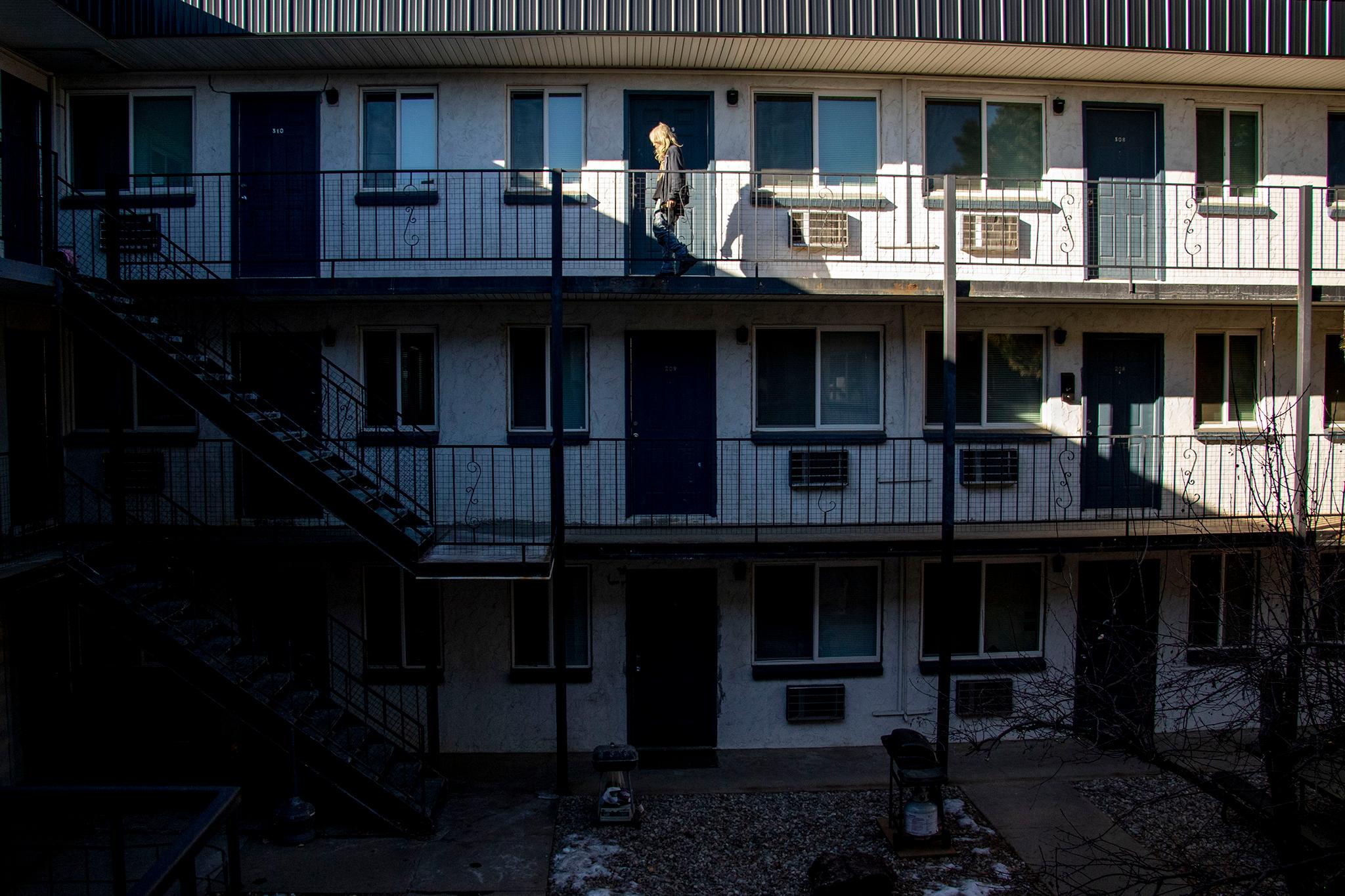
Mish's center has had several homes in Denver. It is currently in a small red brick building that once was part of an Army medical depot, at 3836 York Street. There and at other such centers across the country, veterans experiencing homelessness can drop in to grab a shower or a cup of coffee, to store belongings while out job or apartment hunting, or to talk with a case manager, therapist or benefits expert. Dawson has a therapist at the center.
The center welcomes help from the public with, for example, sock or coat drives, Mish said. Support could also mean talking to a landlord about renting to a veteran who has a federal housing subsidy voucher under a program operated jointly by the VA and the Department of Housing and Urban Development.
"We always need landlords," Mish said. "We're always on the lookout for partners."
Because she is a federal employee, Mish can not advocate for any particular policy, but she urges citizens to talk to their elected officials about steps they believe could help connect veterans with housing. Another way to get involved, she said, would be to volunteer to help conduct the annual survey of homelessness known as the Point in Time.
The count is an opportunity to talk with people experiencing homelessness, and that it may expand a person's personal understanding of the problem. It may also help because the count is used to inform decisions about federal spending to support people experiencing homelessness -- including through housing.
Communities across the country hold Point in Time counts of people experiencing homelessness in one 24-hour period in late January. The January 2019 count found 37,085 veterans among the 567,715 people experiencing homelessness across the country on a typical night. While the total population in homelessness increased from 552,830 in 2018, the number of veterans dropped slightly from 37,878 in 2018. In metro Denver, the 2019 count put the number of veterans experiencing homelessness at 627, up from 566 in 2018. The overall count in the Denver area also rose, from 5,317 to 5,755.
Results from this January's count won't be available for several months.
A one-day count can point to trends, but might not tell the whole story. The Point in Time's main value -- beyond the federal monies for local communities that are tied to it -- may be that it draws attention to the problem, and allows people who want to address it an opportunity to learn directly from those experiencing homelessness.
Last year for the first time, the Metro Denver Homeless Initiative, the nonprofit that oversees the local Point in Time survey and reports the numbers every year, included questions focusing on veterans.
People who identified themselves as veterans were asked whether they wanted to speak later with a VA outreach worker. Those that did were asked to give their full name and a way to be contacted.
The VA's Mish said within a week or so of the 2019 Point in Time, her center was able to add 69 veterans to its database because of those extra questions. Over several months it was able to help at least 15 of those to housing. The special veterans section was also part of the 2020 Point in Time survey.
In addition to trying to make the Point in Time more useful by occasionally adding questions such as those on veterans, the Metro Denver Homeless Initiative has been working to improve the collection and sharing of data on homelessness every day. Two years ago, the nonprofit chose a new vendor to create a database that public and private service agencies across the region can share. It will mean that from day to day, and not just when the Point in Time reports come back months after the January count, Denver will have figures for how many people are sleeping in shelters or dropping into day centers to ask about housing or jobs.
Details such as who among those showing up at shelters are veterans will also be logged and shared, allowing organizations who focus on veterans to respond quickly with support. For details on people who do not access shelters, the Point in Time will remain an important measure.
Putting the new system in place took a year and a half. In recent months, the Metro Denver Homeless Initiative has been training service providers on how to use it. Matt Meyer, executive director of the Metro Denver Homeless Initiative, said that once it's up and running across the region, he and his colleagues will be able to respond better to individual needs, as well as see overall how the system is working -- and where it needs work.
The national VA allows its regional centers to participate in such a local database, known as a Homeless Management Information System, or HMIS -- but it does not require it. In Denver, the VA is part of the new HMIS system.
"We realized quintessentially how important that was as a tool," the VA's Mish said.
In addition, new federal funding has since last March allowed Lapinski at the VA Community Resource and Referral Center in Clayton to focus on coordinated entry, an approach that depends on up-to-date and detailed information to help those who need housing or health care, employment, food or other support. Staff at shelters and other service providers meet regular to strategize solutions, sometimes for specific individuals, as part of the coordinated entry process.
Chris Conner, homelessness resolution director for the city of Denver's housing department, said some people might need nothing more than help with a deposit or first month's rent. Some need continuing subsidies.
"If we don't supply supports for some people, it just sets them up for failure," he said.
Stacey Moslet, who heads a Denver Human Services team that reaches out to veterans, said part of her work includes building relationships with mental health service providers such as the Steven A. Cohen Military Family Clinic, a collaboration with the University of Colorado Anschutz Medical Campus.
"We've got a large number of veterans that we're working with that are experiencing some sort of mental stress -- some of that the stress of being homeless," Moslet said.
"I feel really motivated because there's a lot of conversation among our partners," Moslet said. "We're not doing it alone anymore. We're definitely stronger ... united."
Ending homelessness requires money, Conner said, adding that "the cost is much less than the alternative: letting homelessness exist."
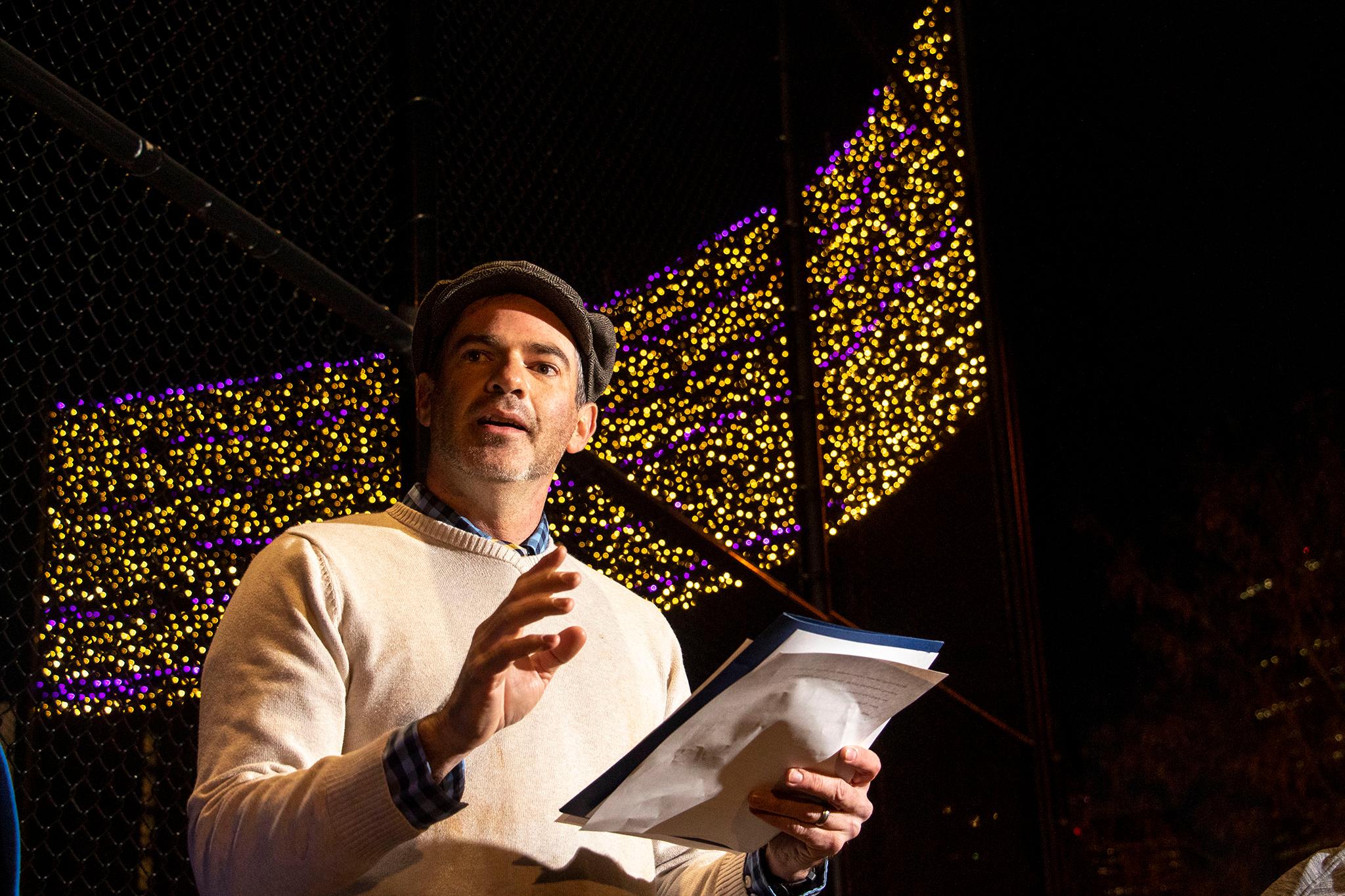
In a pilot program launched in 2016, investors gave $8.6 million to help Denver prove that housing people who have experienced long-term or repeated homelessness is cheaper than jailing them or repeatedly caring for them in emergency rooms. Under the program, the Colorado Coalition for the Homeless and the Mental Health Center of Denver use police arrest data to identify some of the most vulnerable people experiencing homelessness. They then help them find housing and provide them health, food, transportation, legal and other support.
The Urban Institute, the Evaluation Center at the University of Colorado Denver and the Burnes Center on Poverty and Homelessness at the University of Denver are tracking whether the program is working. They say early results are promising, but the final judgment will be clearer only after next year, when the researchers plan to compare the experience of participants in the program to people experiencing chronic homelessness who have not been part of the pilot.
Brenton Hutson, a Marine veteran who is director of veterans and supportive services for Volunteers of America in Denver, said making progress against homelessness requires that funders, whether private or public, demand accountability. When data show that programs are failing, service providers must change course, he said.
"Any resources right now that aren't leading to results need to be redirected," he said. "What doesn't work is just engaging in congratulatory behavior without asking those hard questions about what does and doesn't work."
"We can end homelessness among veterans. We can end homelessness among everybody," Hutson said. "If we fail to do so, it's not because of lack of ability. It's lack of will."
"We still don't fully know" what works to end homelessness in the Denver area, Hutson said. "We have to be smart about how to approach this problem. We have to be strategic. And we haven't always been."
"We as a statewide community have really lagged behind other parts of the country," Hutson said. "We're starting to catch up."
Alderman of the Colorado Coalition for the Homeless said the broad outlines, at least, of what works are clear.
"We know that we can solve homelessness for targeted populations if we implement programs for those targeted populations," she said.
"If we wanted to make veterans a priority, we could. Just like we have with chronically homeless individuals," she said, adding that some of those experiencing chronic homelessness are veterans.
Conner, of the city's homelessness agency, said veterans can tap into resources that others cannot.
"There's definitely national systems that have been built upon veterans homelessness that are different from the mainstream homeless population," he said.
If national leadership works in the case of veterans, it could be an argument for more national leadership in combating homelessness in general.
Data is on the minds of many.
Community Solutions launched an initiative called Built for Zero in 2015 to help communities coordinate and use data to address homelessness. Built for Zero includes more than 70 communities across the country. A dozen of those are said to have ended homelessness for veterans or the chronically homeless. Among them is Lake County, Illinois, which joined Built for Zero in 2015 and declared victory over homelessness among veterans last year.
That doesn't mean no veterans will ever again experience homelessness in those places, but that the communities have the resources and procedures to ensure that it happens rarely and is quickly resolved. Metro Denver, which has been involved in Built for Zero since 2016, has yet to reach that status.
Melanie Lewis-Dickerson of Community Solutions said that while Built for Zero is built around veterans and people who have experienced chronic homelessness, her organization's overall goal is "to end homelessness for everyone and leave no one behind."
According to VA calculations, three states -- Connecticut, Delaware and Virginia -- and 78 communities had ended homelessness among veterans as of late 2019. No Colorado communities meet the VA definition for having ended homelessness among veterans, which starts with getting data: identifying all veterans experiencing homelessness. In addition to knowing who the veterans are who are experiencing homelessness, the VA says a community has ended homelessness for veterans if it can provide shelter immediately to any veteran experiencing homelessness who wants housing and a host of other key supports.
Lewis-Dickerson has worked with cities and towns across the country trying to end homelessness among veterans and is a Denver-based portfolio manager for Community Solutions. She said that after 10 years in Denver, she is for the first time seeing strong commitment to collaboration among the agencies addressing homelessness.
Late last year, it was announced that Fremont, Mesa, El Paso, Pitkin, Garfield, Eagle, Larimer and Weld counties were joining metro Denver in Community Solutions's Built for Zero initiative, with support from the state Department of Local Affairs and Kaiser Permanente Colorado, the state's largest nonprofit health plan. The expansion created a statewide partnership that is unprecedented for Built for Zero, Lewis Dickerson said. Denver and other communities along the Front Range face fast-rising housing costs that can make it difficult to house people whose incomes are limited, fixed or both. Rural communities have their own challenges that include a lack of housing stock.
"If a community has a shared and measurable goal and uses data to make progress, such challenges won't stand in the way," Lewis-Dickerson said.
Data, she said, can be used to answer a key question: "Are the things that we're doing actually moving the needle?"
Meyer, executive director of the Metro Denver Homelessness Initiative, believes that thanks in part to the new HMIS data system, ending veteran homelessness in the Denver area could happen within two years.
But Meyer acknowledged: "We have a problem with the affordability of housing. And no HMIS system can make up for this."
When Dawson's VA liaison told him about an apartment available in Aurora, he was skeptical, thinking, "I'm going to go out there, they're going to tell me, 'No,' and I'll just be more frustrated."
His VA contact kept urging him until he made the long bus ride from Beacon Place on West Colfax to Aurora. Once at the apartment complex, he rushed to tell the manager about his criminal record.
The manager said he could have the apartment, and he moved in last March.
Dawson has a 550-square-foot one-bedroom with a galley kitchen where he "make a mean oxtail and chili" in the 66-unit Abrigo Apartments. The vaguely Spanish style stucco and tile complex is near the Aurora medical campus that includes the regional VA hospital. The 50-year-old complex recently had been purchased by the national nonprofit Community Solutions in a real estate strategy being piloted in the Denver area to address homelessness among veterans.
Community Solutions was able to buy Abrigo in less than three months. That compares to the years it can take to put together the financing for a project that will offer housing at below-market rates through subsidies and other strategies. Community Solutions bypassed the usual route of seeking grants and government tax credits and instead went to investors who agreed to accept a 3 percent return instead of the usual 10 to 12 percent they might expect from a real estate deal.
"I don't know that there's a silver bullet, but access to capital is certainly a leading piece of the equation," said Dave Foster, an Army veteran who is director of real estate development at Community Solutions.
People already living in the Abrigo when Community Solutions bought it aren't being pushed out to make way for veterans. But as apartments open up at Abrigo, prospective tenants who are veterans will be prioritized. As Dawson found, barriers are kept low for veterans.
Jon Gratton directs Bastogne Development Partners, which advises Community Solutions. Gratton said another buyer might be intent on replacing old tenants with new renters who would be charged more.
"We've made a deliberate effort to preserve affordability," Gratton said.
A one-bedroom at the Abrigo rents for about $1,080, including utilities. The average Denver area rent was $1,503 in the fourth quarter of 2019, according to the Denver Metro Area Apartment Vacancy and Rent report.
As Dawson demonstrated, some veterans hesitate to come to Abrigo. When an apartment is vacated, word of its availability is initially spread only among Community Solutions's contacts with navigators helping veterans experiencing homelessness. As a result, the unit is kept empty a little longer than usual.
"It hurts some of the financials," Gratton said. "But it serves the mission."
Community Solutions is now working on a second purchase similar to the $7.5 million Abrigo deal in the Denver area with the goal of soon owning 600 units, 300 of which would be set aside for veterans. The nonprofit hopes to bring the strategy to other parts of the country that have seen housing prices increase much faster than wages.
Rocky Mountain Human Services, a nonprofit that works across the state to support vulnerable children and adults, has an ambitious name for its VA-funded program for veterans: Homes for All Veterans.
Fulfilling the promise of that name in the Denver area's market can be a challenge, said James Sieffert, the Denver-based Homes for All Veterans operations manager. Sieffert is an Air Force veteran who has experienced homelessness.
Sieffert has worked with programs such as Sunshine Home Share Colorado, which connects home-seekers to seniors who might need financial or other support to stay in their home.
"We're definitely trying to think out of the box and trying to find new ways to come up with solutions," Sieffert said.
VA social worker Mish said: "There are so many paths into homelessness that we need to have just as many out of homelessness -- that don't look the same for everybody."
Without a map, that can be a confusing landscape.
Now that he has settled into his apartment, Dawson, who is retired, said he doesn't want to be idle. He has considered volunteering to guide other veterans, sharing what he has learned about housing and other resources available to his peers.
Conner of Denver's housing department has been an outreach worker among people experiencing homelessness. He's seen veterans and others who were reluctant to accept help, concerned that that could mean others in greater would have to go without.
"A lot of times the vet will step aside for someone else," Conner said. "They still have this strong ethos or value of being of service."
Jeremy Stern, spokesman for Comitis Crisis Center, knows an awareness gap exists.
"A lot of veterans don't have an idea of all the services that are available to them," Stern said. "A lot of them just think they have to go through it alone."
Comitis outreach teams roam the streets and riverbanks, trying to persuade people experiencing homelessness to come in for help. The Aurora Day Resource Center is run by Comitis, Mile High Behavioral Healthcare and the city of Aurora in an old police gym steps from the VA hospital. Veterans and others experiencing homelessness can get help with housing and jobs there, and also get into the regional homelessness database. Many of those who drop in are working, but not earning enough for housing, said Susan Vaho, who has run the drop in center for several months after decades working at other service providers in the Denver area. A bank of lockers at the Aurora center allows people to store their belongings while they are at work or out searching for housing.
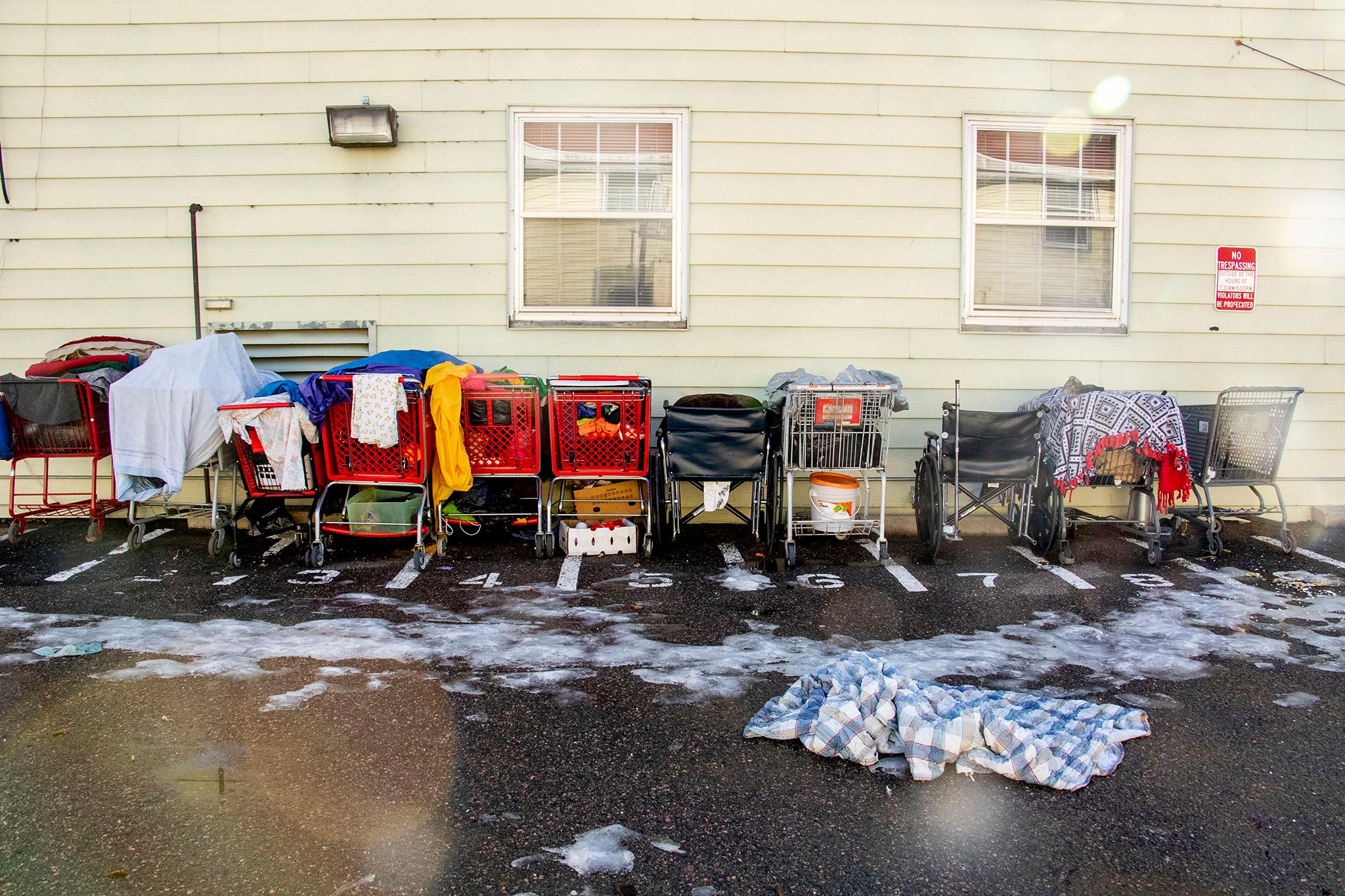

Comitis runs a transitional housing project near the drop-in center in a building that had been part of the Fitzsimons Army campus, an area that is now home to several hospitals, including the VA medical center.
Families experiencing homelessness referred by the VA can spend up to two years in the Comitis veterans wing, where a dedicated case manager helps them with such challenges as finding permanent housing and getting their finances in order.
A personal encounter made the difference for Air Force veteran Matthew Dixon-Moran when he was experiencing homelessness.
Dixon-Moran had joined the Air Force right out of high school in 1994. Two years later, he was among the nearly 500 injured when a tanker truck loaded with 25,000 pounds of explosives struck a U.S. Air Force housing complex, Khobar Towers, in Dhahran, Saudi Arabia.
Nineteen of Dixon-Moran's fellow airmen were killed in the attack. Dixon-Moran survived, but his injuries led to an honorable discharge on medical grounds in 1998, when he was living in California. He had planned to make the Air Force his career, and his discharge left him at a loss. He drifted, eventually losing his apartment.
He felt he "wasn't worthy. That I deserved to be in the situation I was in," Dixon-Moran said.
"It felt kind of shameful that I had joined the military and I wasn't able to fulfill the commitment I'd made for myself," he said.
He homelessness experience lasted two years. The beginning of the end was a chance encounter with a woman in a McDonald's in Sacramento.
"I was trying to get coffee or something and I didn't have the money," he said.
The woman offered to buy him a coffee on the condition that he sit with her and tell her how he had come to be in his situation. Once they sat down, one of the first questions she asked was whether he was a veteran. Dixon-Moran hesitated, but told her he was.
She responded: "I'm a veteran as well. It was hard for me when I got out. I didn't have anyone to show me the way."
Often, Dixon-Moran said, "veterans don't like to talk about the time that they were in the service with people who weren't in the service."
The woman at McDonald's put Dixon-Moran in touch with a navigator who specialized in helping veterans understand their eligibility for benefits and services. Dixon-Moran learned he was eligible for $700 a month in disability benefits. He found an apartment he was glad to have, even though the rent ate up nearly half his benefit check.
"Once a person has a roof over the head or a home ... it changes your whole outlook," he said. "That kind of motivated me to say, 'OK, I need to get a job.'"
His mentor from McDonald's connected him with an employment service. That led to a temporary stint with a cell phone company that became permanent. He met his husband at that job, and established a rapport with his father-in-law, who also had been medically retired from the military. When Dixon-Moran and his husband moved to Colorado in 2009, it was to help care for his ailing father-in-law, who had fallen ill.
Dixon-Moran is now an auditor at the Denver office of the U.S. Department of Housing and Urban Development. He also commands Denver's Veterans of Foreign Wars Post 2461, which under his leadership applied for a grant from the state's Veterans Trust Fund. His post uses the money to help, for example, when a veteran is behind on the rent, including paying rent in emergencies so that they can avoid evictions and ending up on the street.
Dixon-Moran would like to see more veterans reach out to veterans experiencing homelessness.
He said he sees an opportunity for broader outreach in partnerships with nonveterans groups that help people experiencing homelessness. Last year, his South Denver VFW participated in the stand down -- an annual event where needy veterans can get linked to housing, health services and other support -- to be held in conjunction with the city's Project Homeless Connect Denver.
Dixon-Moran is also a regular Point in Time volunteer, counting people experiencing homelessness. He said it can be hard to get others to join him seeking out people experiencing homelessness and interviewing them about their needs. Even fellow veterans express fearfulness. And veterans as well as civilians, Dixon-Moran said, are increasingly out of practice with face-to-face interaction in our age of social media.
"I don't think people care until they hear about" homelessness, he said. "And, then, a lot of people don't care until it happens to them."
On his commute between his home in Aurora and his job in downtown Denver, Dixon-Moran stops to talk to people he sees standing on street corners signs indicating thy are veterans.
"You never want to see a comrade fallen or out on the streets," Dixon-Moran said. "That could be you one day."
Correction: This article was updated to correct an error by the reporter. It corrects national Point in Time figures for 2019 and 2018. The 2019 Point in Time found 567,715 people experiencing homelessness across the country on a typical night, an increase from 552,830 in 2018.

